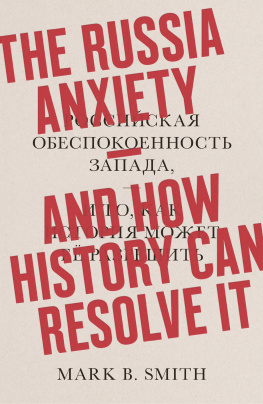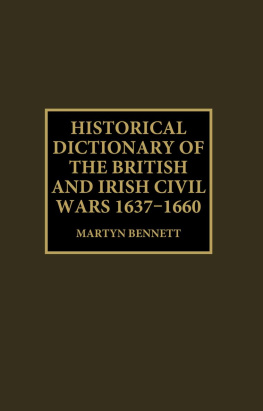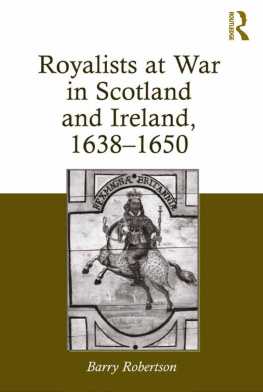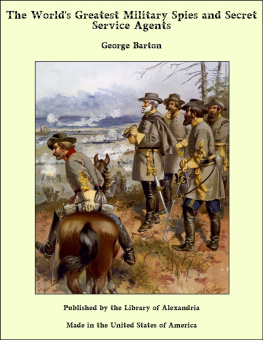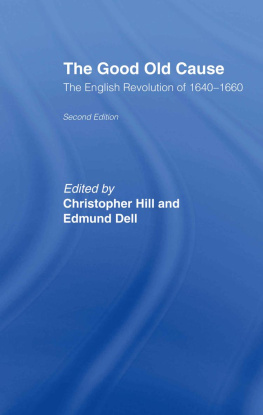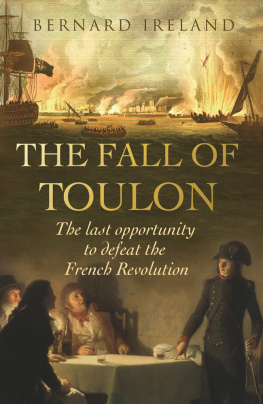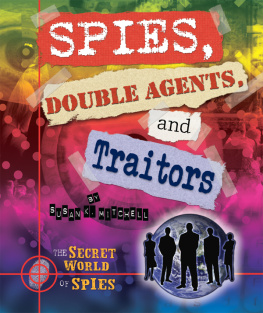ROYALIST AGENTS, CONSPIRATORS AND SPIES
Royalist Agents, Conspirators and Spies
Their Role in the British Civil Wars, 16401660
GEOFFREY SMITH
University of Melbourne, Australia
ASHGATE
Geoffrey Smith 2011
All rights reserved. No part of this publication may be reproduced, stored in a retrieval system or transmitted in any form or by any means, electronic, mechanical, photocopying, recording or otherwise without the prior permission of the publisher.
Geoffrey Smith has asserted his right under the Copyright, Designs and Patents Act, 1988, to be identified as the author of this work.
Published by
Ashgate Publishing Limited
Wey Court East
Union Road
Farnham
Surrey, GU9 7PT
England
Ashgate Publishing Company
Suite 420
101 Cherry Street
Burlington
VT 05401-4405
USA
www.ashgate.com
British Library Cataloguing in Publication Data
Smith, Geoffrey, 1938
Royalist agents, conspirators and spies: their role in the British Civil Wars, 16401660.
1. Great BritainHistoryCivil War, 16421649. 2. Great BritainHistoryCharles I, 16251649. 3. Great BritainHistoryCommonwealth and Protectorate, 16491660. 4. Spies Great BritainHistory17th century. 5. RoyalistsGreat BritainHistory17th century.
I. Title
942.062-dc22
Library of Congress Cataloging-in-Publication Data
Smith, Geoffrey, 1938
Royalist agents, conspirators and spies : their role in the British Civil Wars, 16401660 / Geoffrey Smith.
p. cm.
Includes bibliographical references and index.
ISBN 978-0-7546-6693-6 (hardcover : alk. paper) ISBN 978-1-4094-1262-5 (ebook)
1. Great BritainHistoryPuritan Revolution, 16421660. 2. EspionageGreat Britain History17th century. 3. Intelligence serviceGreat BritainHistory17th century. 4. Great BritainHistoryCivil War, 16421649Military intelligence. 5. Great BritainHistory Commonwealth and Protectorate, 16491660. 6. RoyalistsGreat BritainHistory17th century. 7. Military intelligenceGreat BritainHistory17th century. I. Title.
DA406.S623 2010
941.063dc22
2010022178
ISBN 9780754666936 (hbk)
ISBN 9781409412625 (ebk)
ISBN 9781409482000 (ebk-ePUB)
Contents
Authors Note and Acknowledgements
During the writing of this book I have received assistance and support from a number of individuals and institutions. I am particularly grateful to John Adamson for his encouragement and advice. During our long friendship there has been a gradual rearrangement of our original teacherstudent relationship. I may have first introduced him to the seventeenth century, but he has played an important part in keeping me in it.
I also appreciate very much the advice and assistance I have received in various ways from John Morrill, Jean-Pierre Vander Motten, Jason McElligott, Nadine Akkerman, David Scott, John Reeve and Philip Major. The staffs of the Baillieu Library at Melbourne University, the State Library of Victoria, the British Library, the Bodleian, the National Archives at Kew and the Institute of Historical Research at London University have been unfailingly helpful when it came to meeting the sometimes difficult needs of an Australian scholar working in seventeenth-century British history. From the time of this books original proposal through to its publication, my editors at Ashgate, Tom Gray and Barbara Pretty, although communication has been principally by emails between Australia and England, have been unfailingly enthusiastic and helpful supporters.
My greatest debt remains to the members of my family, who have displayed patience and even occasionally enthusiasm at the eccentric determination of an Australian to spend long periods in seventeenth-century Britain and Europe. The forms of assistance and encouragement that they have shown have been so varied, ranging from technical help with the vagaries of computers to the provision of a welcoming second home in London, and the family is so large, that they cannot all be listed individually here. But this book is dedicated to all of them: to my now well and truly grown-up children, to their partners and the grandchildren, and especially, who must be mentioned specifically, to Margaret.
Dates are given in old style, except that the year is taken to begin on 1 January rather than on 25 March.
Geoffrey Smith
Melbourne, Australia
June 2010
List of Abbreviations
Add. MS(S) | Additional Manuscript(s) |
BIHR | Bulletin of the Institute of Historical Research |
BL | British Library |
Bod.L. | Bodleian Library, Oxford University |
CCC | Calendar of the Proceedings of the Committee for Compounding |
CClSP | Calendar of the Clarendon State Papers |
ClSP | State Papers Collected by Edward, Earl of Clarendon |
CJ | Journal of the House of Commons |
CSP, Foreign | Calendar of State Papers, Foreign |
CSP, Ireland | Calendar of State Papers, Ireland |
CSP, Venetian | Calendar of State Papers, Venetian |
CSPD | Calendar of State Papers, Domestic Series |
EHR | English Historical Review |
HMC | Historical Manuscripts Commission |
LBM | The Letter-Book of John, Viscount Mordaunt |
LJ | Journal of the House of Lords |
NA, SP | National Archives, State Papers |
NP | The Nicholas Papers: Te Correspondence of Sir Edward Nicholas |
ODNB | Oxford Dictionary of National Biography |
TSP | A Collection of the State Papers of John Thurloe, Esq. |
Underdown | D. E. Underdown, Royalist Conspiracy in England, 16491660 |

Map 1 England and Scotland

Map 2 Ireland

Map 3 Europe
Introduction
I shall say verrie little, because I will refer myself to the faithfull relation of this honest bearer . Commend me to Montrose and desyre him to give credit to what this bearer shall tell him in my name.
King Charles I to Lord Traquair, Windsor, 26 January 1642
On 6 May 1642 the deliberations of the House of Lords in what was to become known as the Long Parliament were interrupted by a terse message from the House of Commons. The peers were informed that Daniel ONeill, committed prisoner by this House to the Tower of London, upon an accusation of High Treason brought against him from the House of Commons, is escaped out of the Tower and fled. Immediately, orders were sent to the Lord Admiral, the Warden of the Cinque Ports, the sheriffs of maritime counties and other officials to search ports and ships for the fugitive and to prevent his escape to the Continent. But the hue and cry unleashed by Parliament was unsuccessful, for Daniel ONeill was a very resourceful young man. Somehow he managed to elude the various officials searching for him and found a ship to take him safely across the Channel to Holland.
Next page






